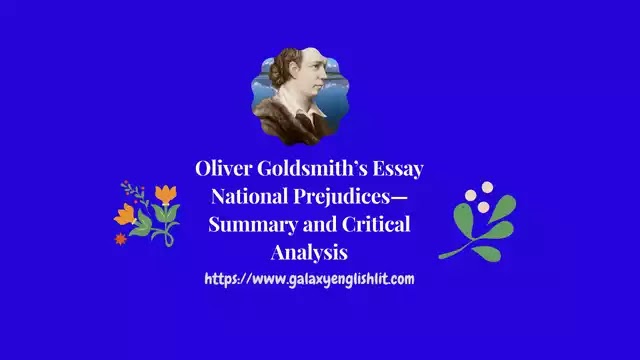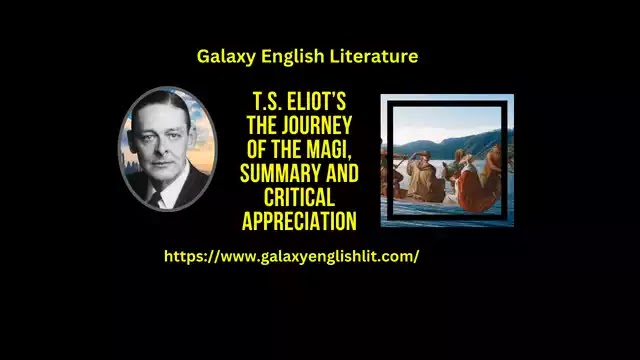Eliot's Having Fancy for the Themes of Isolation and Alienation:
During and since the nineteenth century Shakespeare's Hamlet has been the symbol of isolation and alienation. So is the case with the 20th century. Eliot had a fancy for the themes of isolation and alienation. His Prufrock, Harry and even Celia (though a woman) are Hamlets in their own sense. Prufrock says: “No! I am not Prince Hamlet, nor was meant to be.” In this Negation we see the analogy between Prufrock and Hamlet . There are positively clear echoes of Hamlet in Harry's situation. When Harry says:
“It is not my conscience, not my mind that is diseased, but, the world I have to live in.”
We are reminded of Hamlet's cry: “The time is out of joint: O cursed spite that ever I was born to set it right!”
 |
| Relationship between The Family Reunion and Hamlet |
Similarity between Harry's Neurosis and Hamlet's Madness:
When Harry's family, still maintaining that he suffers from delusions, sets the old family - doctor to spy out the cause of his neurosis, they suggest the behaviour of the king and Polonius. There is the similarity between Harry's neurosis and Hamlet's madness pretended or otherwise. Both are gifted with extraordinary imaginative power which works beyond the sphere of the analytic reason and hence appears madness to the ordinary people. Just like Hamlet, Harry also represents what may be termed the heightened concentration into on sensitive person of the main characteristics of thought and action in one of the great types into which humanity may be divided.
The Reason of their (both Hamlet's and Harry’s) Isolation and Alienation:
Both (Harry and Hamlet) are psychological complexities and this fact explains why they stand isolated and alienated from the rest of the world. Strangely enough we find in Harry a reminder of what Eliot found unsatisfactory in Hamlet as a play: that Shakespeare gives the sense, thereof struggling with some intractable material that he could not bring to light, that the author could not find an objective correlative to the feelings of his hero. The Family Reunion presents an exactly similar problem at its dramatic centre. The first part of the action carries us to a frontier which drama cannot cross. Hence the climate is a dramatic anticlimax.
Similar End of Both the Plays and also a Similarity of the Theme:
The end of both the plays is somewhat similar. The Family Reunion ends with Harry's departure and his mother's death. Hamlet ends with the death of Hamlet and that of his mother. Hamlet's death is a permanent departure like Harry's living departure to suffer.
The theme of the play also has a distant similarity to that of Hamlet. Harry and Hamlet both find themselves in a very delicate situation. Hamlet is up against that his disgust is occasioned by his mother. Harry's problem is also quite similar and both resemble the duty that compelled Orestes to kill his mother. Both suffer from a mother - fixation and in both there are occasions when the love of mother becomes such an obsession as to make them think of deviating from the path of duty. At the end of the play, Harry accepts the fact that his destiny is to suffer more, not to evade, no longer to flee from but to follow the Furies. Hamlet calls death ‘felicity’.
Similarity between the Ghost in Hamlet and the Furies in The Family Reunion:
Both Harry and Hamlet are aided or provoked by ‘power beyond’ this earth to fulfil revenge. The ghost in Hamlet reminds Hamlet of his duty just as the avenging furies of Harry's objective representations of his guilt pursue him and always arrive at the nick of time to remind of his duty.
Tragic Love of Mary and Ophelia:
One may discern in Harry's relation to Mary a faint echo of the tragic love of Ophelia for Hamlet. It was a passion which would have saved Harry from a sense of futility and would have restored Harry to normal life. But as this relationship was an obstruction in the path of revenge. The Eumenides warn him from an evasion of duty. In Hamlet too the Ophelia scenes are a sort of diversion from the main motive of revenge.





